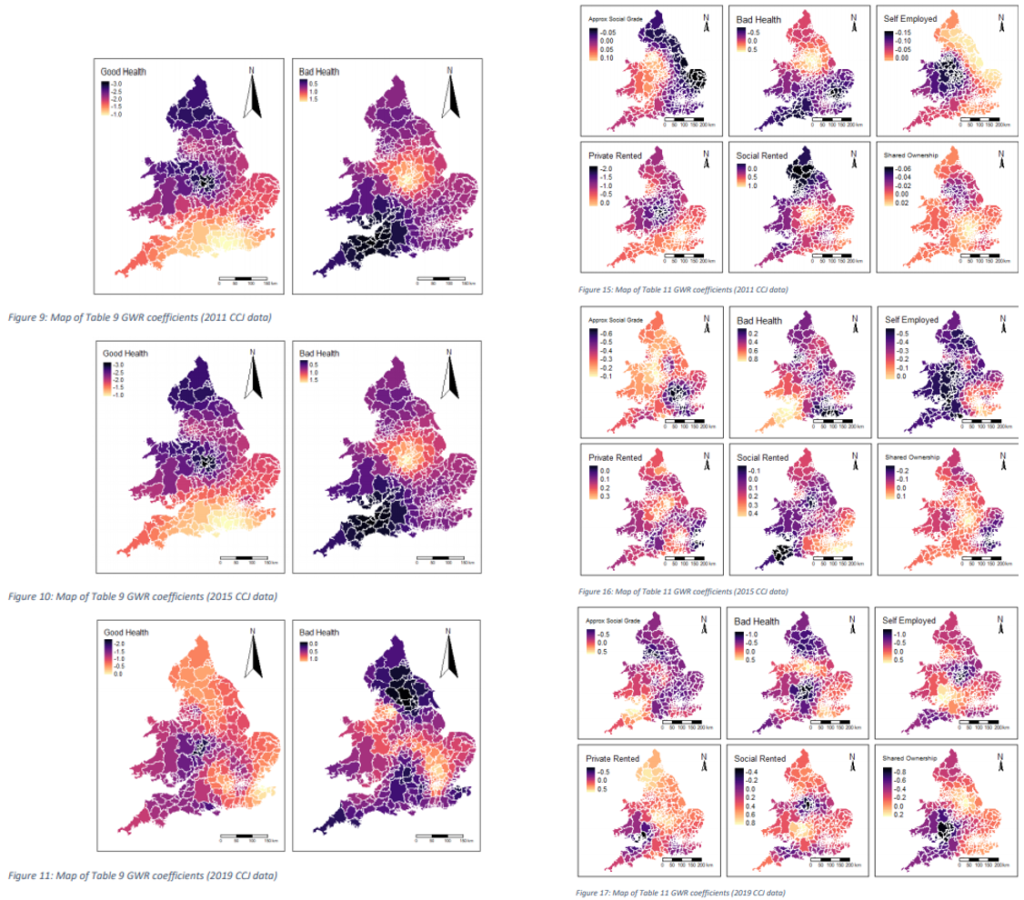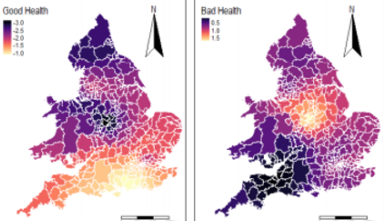With our data partner Registry Trust, CDRC can provide access to data on County Court Judgements, which offer a key measure of financial health, both at an individual level, and also at an area and country level. The data are available County Court Judgements, either at an aggregated level (MSOA and Local Authority District) as a Safeguarded product or aggregated to LSOA level and at individual Judgement level as a Secure data product.
These data can be used as input data to a wide range of analyses looking at financial health and a range of other factors. Millie Corless, Data Analyst at Registry Trust, works with these data and performs a wide variety of analyses. However, she only has limited time available to analyse these data, so there are many more potential projects that could be done, with some examples listed below and on the data page.
Prior to working at Registry Trust, Millie completed her masters dissertation through the CDRC Masters Dissertation Scheme (MDS), working with the Registry Trust, which gave her the time to analyse the data in new and interesting ways. Millie is very interested in health and she looked at the CCJ data and explored its relationship with health.
Her dissertation project assessed geographic and temporal patterns in consumer (individual level) County Court Judgment (CCJ) rate (as an indicator of financial vulnerability), and considered the extent to which general health influences personal financial vulnerability across England and Wales. The project then considered the influence of additional socio-economic variables, such as Tenure and Employment Status, on financial vulnerability. The outcomes highlighted spatio-temporal locales where specific socio-economic variables influence financial vulnerability more, thus where the implementation of health improving policy will tackle the instability. More details available on her blog post.

There are a number of potential topics listed on the CDRC Data page that could be undertaken with CCJ data. These would make a good Masters Dissertation project (Registry Trust will be offering projects through the MDS) or you are welcome to apply to access the data and complete a different project independently.
Potential projects could include:
- Work on a way to derive and publish a set or range of economic health indicators
- Predict the future trend of these economic health indices
- Use data to highlight exceptions and process inefficiencies in public sector entities e.g. exception reporting on court timelines, outcomes that are outside expected benchmarks, highlighting court inefficiencies, bottlenecks or process flaws
- Improve existing data accuracy and gaps, e.g. impute missing or inaccurate data
- Explore issues around CCJs and fraud – tackle the myth of the ‘unsound’ CCJ
- Look at the effect of politics on indebtedness – what relationships are there between Government, national political representation, local representation and indebtedness?
- Develop the Financial Stress Tracker produced by Registry Trust, to include the self-employed, those on low income, those who have been impacted by COVID and other factors.
- Focus solely on Scotland or Northern Ireland, as these regions have had less focus at Registry Trust.
- Get a closer insight into those taking out a judgment, for example which are the most forthright? Why might this be? Are there spatial or temporal trends?
If you are interested, or would like more information, please either reach out to Millie directly (m.corless@registry-trust.org.uk) or email CDRC (info@cdrc.ac.uk).

